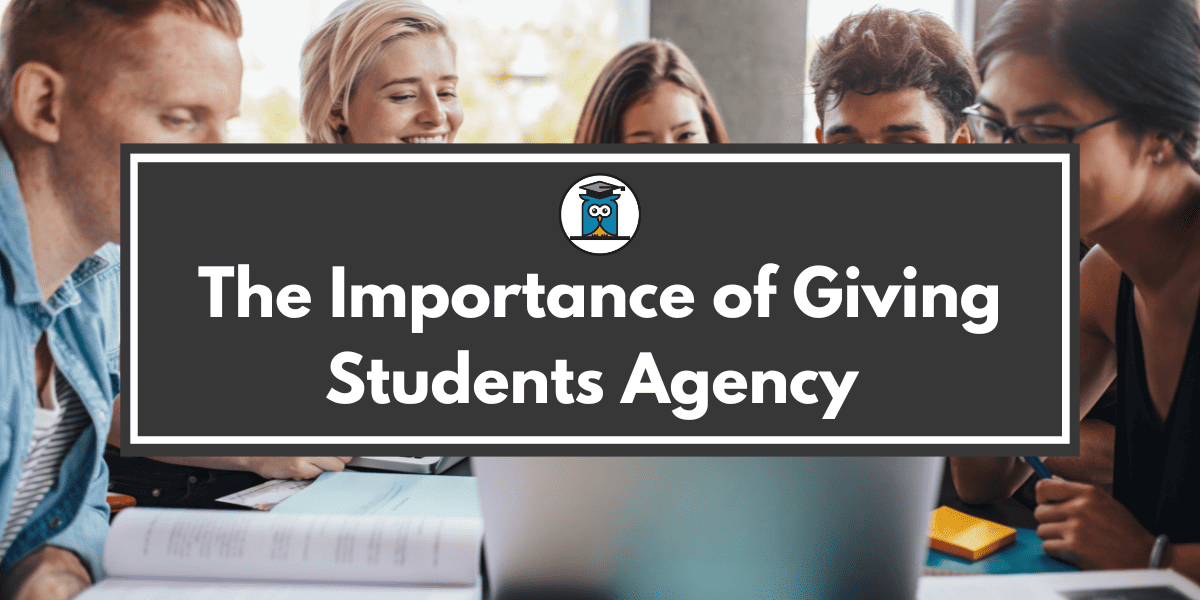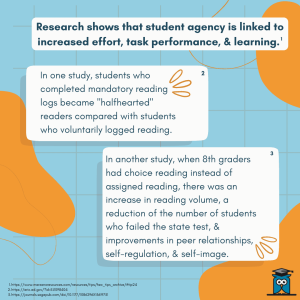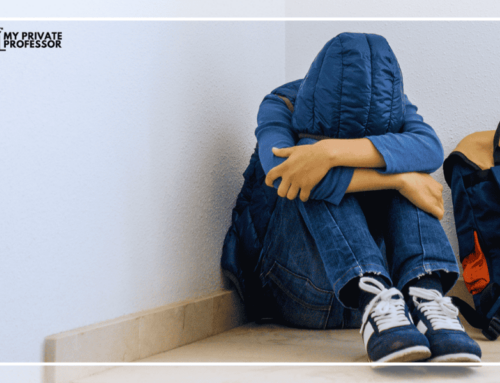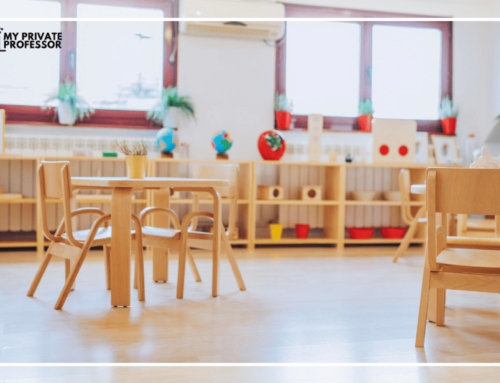When I entered sixth grade, I joined the chorus. Although, I should maybe say I was “placed” in the chorus, because it wasn’t my idea, but my parents’. Not that I’m resentful about it! Maybe at the time I was, because really, I just wasn’t that into it.
I enjoyed some parts of it. Like how I got to see a lot of my friends! (Seemingly, a lot of parents had the same idea as mine.) Or the entertainment of it all. (It took a lot of heavy lifting to get all of us sixth-, seventh-, and eighth-graders to sing “Oh What a Beautiful Morning” in sync.)
And the practicing part wasn’t all bad. I consider myself a pretty musical person, so singing can be a pleasant activity for me. But at the same time, I have somewhat introverted tendencies, which may explain why I didn’t feel inclined to be in the spotlight at the time.
I didn’t love singing on stage in front of all of the parents—and add the entire student body into the mix? Yeah, right.
If I eliminated the humiliation factors (like getting singled out by the teacher in front of the entire chorus because I wasn’t smiling enough while singing the chorus to “Omnia Sol”, which happens to be in Latin), it wasn’t too bad. But singing in front of all of those people seemed like a dealbreaker.
Now though, I am happy to have had the experience. If I hadn’t joined chorus, who knows if I ever would have gotten to the next stage of my musical journey?
Transitioning to the drums
Months later, in the summer leading up to seventh grade, I knew something had to change. So I asked my parents if I could try something else: the drums. Now let me be clear—I am so incredibly grateful that I had the privilege to take drum lessons. Here’s some more context.
I was lucky that my Dad, a musician, himself, was not only open to me dipping my toes into a new musical endeavor (prior to chorus, I had dabbled with piano for years, ultimately quitting lessons, which made me want to evaporate), but excited to help me take those first steps.
My Dad—I think, through my school’s percussion teacher—knew of a drum teacher.
Etiene was in his early twenties and lived in a cute house somewhere up in Riverdale (which is technically part of the Bronx, but ask anyone who considers themself from the Bronx, and they’ll tell you that Riverdale is certainly not in the Bronx), with his girlfriend.
When I met him, I thought drumming was just his fun side hustle. But a couple of years later, I learned that he had become the drummer of the popular indie/pop/alternative band, Misterwives!
The big audition
After months of lessons, I was ready for my “audition” for the percussion ensemble at school. It was a big deal. Just kidding! It wasn’t too crazy.
The percussion teacher, Scott Latzky, had me sit in front of him on the drum set and play some basic beats and rudiments (drumming patterns). I think he also asked me to play the drum parts to a song. Or maybe I volunteered. Either way, I was happy to do it. When I first started playing with Etiene, he gave me the reins and always asked me to pick the songs I wanted to learn. (I always picked The Beatles.)
Up to that point, the most impressive song I had learned was “Come Together” by The Beatles, so that’s what I played for Mr. Latzky. I was excited to show off my skills in the beginning section, where you have to use almost every part of the drum kit. Afterward, Mr. Latzky (who, going forward, we’re going to refer to as “Latzky” because that’s just how it was in school), told me I was in! I was thrilled–largely (at least in that moment), because it meant chorus career was over.
Joining the percussion ensemble
Percussion was a completely different ballgame.
It wasn’t formal at all! Unlike in chorus, where we’d arrive and sit in our assigned seats, apprehensively waiting for the teacher to arrive, percussion felt relaxed. We got to class (which, instead of an intense semicircle of chairs that rose from the floor up, was a small room with a row of maybe 12 seats), and talked, or messed around on the various instruments set up (drum set, timpani, marimba, bells).
The energy was calm (unless, of course, we were all waiting to receive our grade on the latest Bio exam). When Latzky arrived, we’d maybe discuss what was going on in school and our lives (Latzky talked to and with us, but never down to us), and then would get into the music.
It wasn’t only the relaxed energy, though. Thinking about it now, there’s another obvious reason why percussion was superior to chorus. And I say that objectively. (Kidding! Kind of.)
A student-led program
Like in Etiene’s lessons, Latzky let us pick what we wanted to play. He put us in charge. And I think this is also one of the reasons why the student body so evidently enjoyed coming to percussion concerts. We picked songs that we enjoyed, which were songs that our friends enjoyed. And Latzky gave us even more creative freedom, tasking us with coming up with the overarching theme for our sets.
Looking back, it seems like neglecting to give students any agency in class works against everyone. Seemingly, it contributes to stifling students’ creativity and ultimately deteriorating their learning.
I recently reached out to Latzky to get his perspective on the matter of student agency. I also wanted to understand what led him to develop a class with this approach.
“Basically, a student-led program is a privilege and it happened gradually. First, I was allowed to create whatever program I wanted, and I knew that having percussionists play together would be super fun. I started by arranging songs that I liked, mostly Latin and jazz music,”Latzky explained.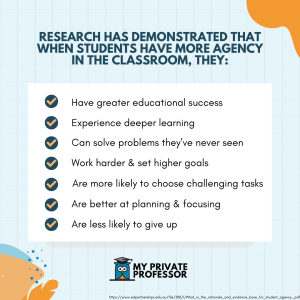
So first and foremost, as Latzky describes, he was lucky to have full creative freedom over his class’ design.
He also noted, “the students enjoyed it but eventually they requested their own songs and I didn’t say no. It went over so well with them (and eventually the audience) that it was a no-brainer.”
Staying open-minded
So evidently, the next thing Latzky did was demonstrate an ability to stay open-minded and make the creative undertaking a more inclusive, collective process.
But Latzky wasn’t just giving us control in a lazy, “I don’t want to do this, so I’ll let them do it” kind of way. He knew that we needed some creative guidance, so we basically “pitched” our ideas, and he guided us along with his years of musical experience.
So in 9th grade, for instance, we looked back on our seventh grade, pubescent selves, and decided that the theme for our set would be Bar/Bat Mitzvah songs (my school had a large Jewish population). We played LMFAO’s “Party Rock Anthem,” the Black Eyed Peas’s “I Gotta Feeling,” and Jay Sean’s “Down.” And just like that, our concert transported ourselves and our friends back to the days of motivational dancers and the Hora.
It was exciting.
In the chorus, we practiced opera-y (which, I know, makes sense in the chorus!) songs, which I think, subconsciously, made many of us have something of an out-of-body experience. We were kids! The tone didn’t match where we were in life. But in percussion, in ninth grade, we were playing ninth-grade songs.
And on top of that, there were no forced, assigned roles in percussion. We didn’t sit, waiting to hear what instrument we would be playing.
“Don’t forget,” Latzky pointed out, “Students in the ensemble also get to choose the instruments they play and how hard they want to work. Some students always want the most challenging part, some want to coast, and some want a mix.”
“My goal was to always meet a student where they are, yet to also encourage growth…”
So we weren’t stressed about being forced to carry out a challenging task that we felt we weren’t ready for. And sometimes, it seems, like this type of instructional approach can dissuade students from fully engaging in the work.
“My goal was to always meet a student where they are, yet to also encourage growth,” said Latzky. “That way I can accommodate a beginner in an advanced ensemble, and the student is more or less responsible for self-discovery and what works best for them.”
I was always excited to go to percussion class. And I don’t think I felt that for most other classes on a normal basis. (If the sun came up, I dreaded math class) And thinking about it now, the value I placed on this class really sheds light on how music can play an integral role in education.
Student agency increases motivation and investment
I really know that I enjoyed percussion when I think about how I was excited about our concerts.
In all other performance situations, I had always experienced a bit of stage fright. Actually, “a bit” might be an understatement (at my camp’s parent’s day performance, I made my parents stand away from where all of the parents sat).
In percussion, I was still nervous for concerts, but it was a nervous excitement, rather than a dread. In other performance-type situations, I could pretty much guarantee that I would be hugely relieved when I was done. But in percussion, part of me was disappointed to be done. The thing is, the enjoyment and collective energy I felt during the performance really did outweigh my nerves.
That energy that I felt wasn’t just a me thing—we all felt it. We had held some agency over our work, which I think, led to us feeling as though there was more at stake. We had invested ourselves. Unlike some classes where the teacher assigns the topics and students put a half-hearted effort into preparing, we worked tirelessly. And even more than that, we always looked for ways to improve our set and take it to that next level.
And it showed when it came time to perform!
According to Latzky, “The best way to engage students is to have fun, and more fun is had with more personal involvement and participation.”
So the lesson learned is that when you put the student in the driver’s seat, it really can pay off.


